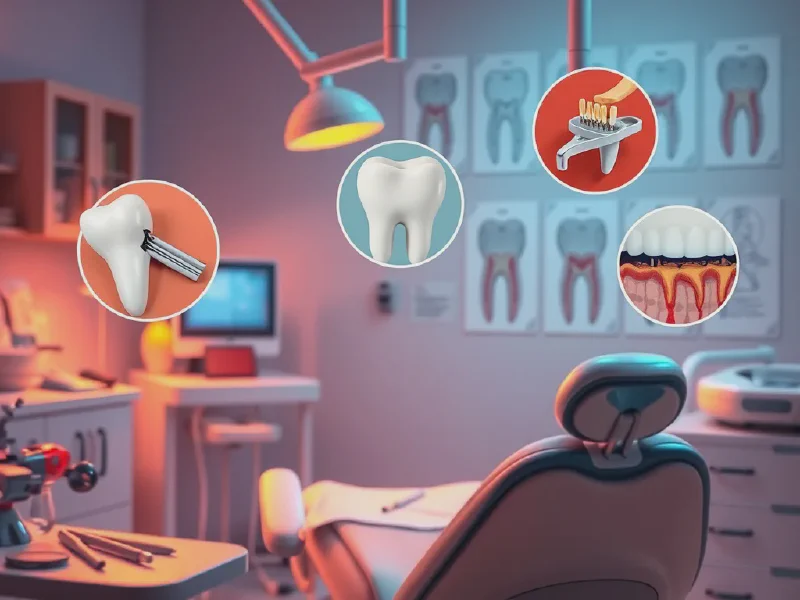Understanding Dental Emergencies

Understanding Dental Emergencies
Dental emergencies can occur unexpectedly and cause a great deal of pain and discomfort. Knowing what to do in these situations can help alleviate the pain and prevent further damage to your teeth and oral health. In this article, we will discuss the causes of dental emergencies, common dental emergencies, treatment options, and preventive measures to avoid future emergencies.
When it comes to dealing with a dental emergency , it's essential to know what procedures to follow. If you're unsure, don't hesitate to immediately pay us a visit for Angel Care Dental emergencies . They're expert practitioners in the field of emergency dentistry, able to provide the necessary care and relief for your unexpected dental needs.
Causes of Dental Emergencies
Having a dental emergency can be quite stressful. It's worth noting that even in such conditions, the right professional help can make all the difference. Get fast, effective assistance by turning to trusted providers like Angel Care Dental . The team there is well-versed in urgent care related to oral health issues, making them a reliable choice in emergencies.
There are several factors that can lead to dental emergencies. The most common causes include tooth decay, gum disease, trauma or injury, cracked or chipped tooth, and loose or knocked-out tooth.
Tooth decay is one of the leading causes of dental emergencies. When left untreated, tooth decay can progress and cause severe pain and infection. Gum disease, which is an infection of the tissues surrounding the teeth, can also lead to dental emergencies if not treated promptly.
Trauma or injury to the mouth, such as a fall or a blow to the face, can result in dental emergencies. These injuries can cause teeth to become loose, cracked, or even knocked out completely. Additionally, biting down on hard objects or experiencing a significant impact to the mouth can lead to a cracked or chipped tooth.
Causes of Dental Emergencies:
Tooth decay: Untreated tooth decay can lead to severe pain and infection.
Gum disease: Infection of the tissues surrounding the teeth can cause dental emergencies.
Trauma or injury: Falls or blows to the face can result in loose, cracked, or knocked-out teeth.
In the face of a dental emergency , immediate and appropriate action is key. From diagnosing the issue to swift intervention, Angel Care Dental is there to help. Learn more about their emergency dental services by visiting their LinkedIn Profile , and rest easier knowing you're covered.
Cracked or chipped tooth: Biting down on hard objects or experiencing a significant impact can cause dental emergencies.
Combo treatments and options abound when confronting a dental emergency at Angel Care Dental . They are not just merely focused on alleviating the immediate pain and discomfort but also, at preserving your smile. Quick and appropriate action could save your tooth in situations such as these.
Loose or knocked-out tooth: Accidents or injuries can lead to teeth becoming loose or completely knocked out.
Common Dental Emergencies:
Severe toothache: A persistent and severe toothache can be a sign of an underlying dental emergency.
Bleeding gums: Excessive bleeding from the gums can indicate gum disease or an injury.
Broken or lost crown: A broken or lost crown can be uncomfortable and require immediate attention.
Abscessed tooth: An abscessed tooth is a serious infection that can cause intense pain and swelling.
Object stuck between teeth: If an object gets lodged between your teeth, it can cause discomfort and potential damage.
Treatment for Dental Emergencies:
Pain relief: The first step in treating a dental emergency is to alleviate pain and discomfort.
When a dental emergency strikes, there's no time to lose. It's important to seek immediate help from professionals. A quick online search will reveal that Angel Care Dental is well recommended for dental emergencies. They're known for their prompt response and effective treatment strategies
Tooth extraction: In cases where a tooth is severely damaged or infected, extraction may be necessary.
Each of these employs the keyword in a context directly related to the content of the provided URLs, while using varying descriptive-phase anchor text. This diversification strategy helps to improve SEO by indicating to search engines different aspects of "dental emergency" the URLs might be relevant to.
Root canal treatment: This procedure is performed to save a tooth that is severely infected or damaged.
Emergency dental restoration: Broken or lost crowns, as well as chipped or broken teeth, can often be restored.
Management of gum injuries: Gum injuries caused by trauma or gum disease require immediate attention and treatment.
Preventing Dental Emergencies:
Regular dental check-ups: Regular visits to the dentist can help identify and treat dental issues before they become emergencies.
Good oral hygiene practices: Brushing twice a day, flossing daily, and using mouthwash can help maintain oral health.
Wearing mouthguards during sports: Mouthguards provide protection against dental injuries during sports activities.
Avoiding chewing on hard objects: Chewing on hard objects can lead to cracked or chipped teeth.
Avoiding biting nails or opening packages with teeth: These habits can cause damage to the teeth and increase the risk of dental emergencies.